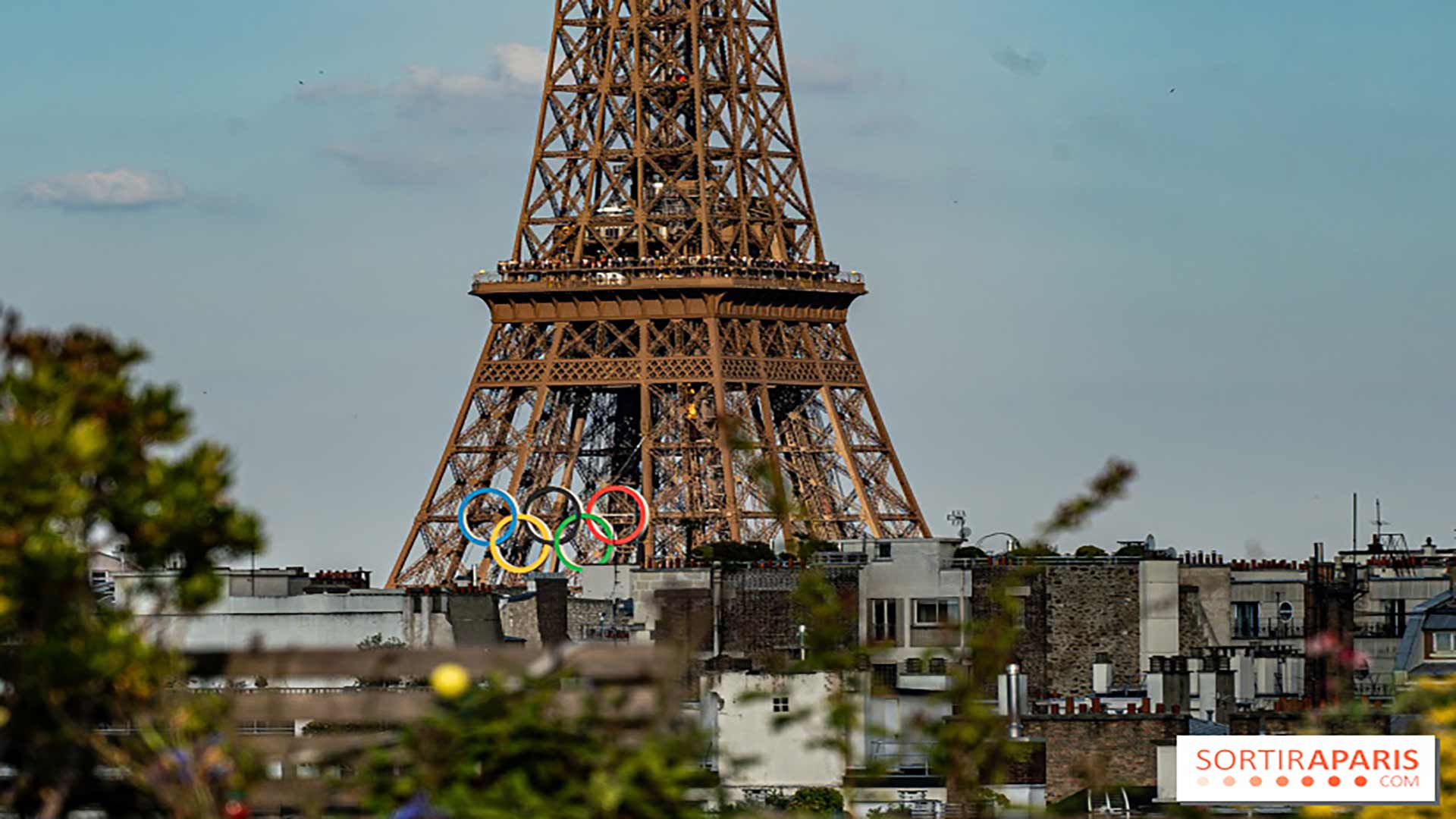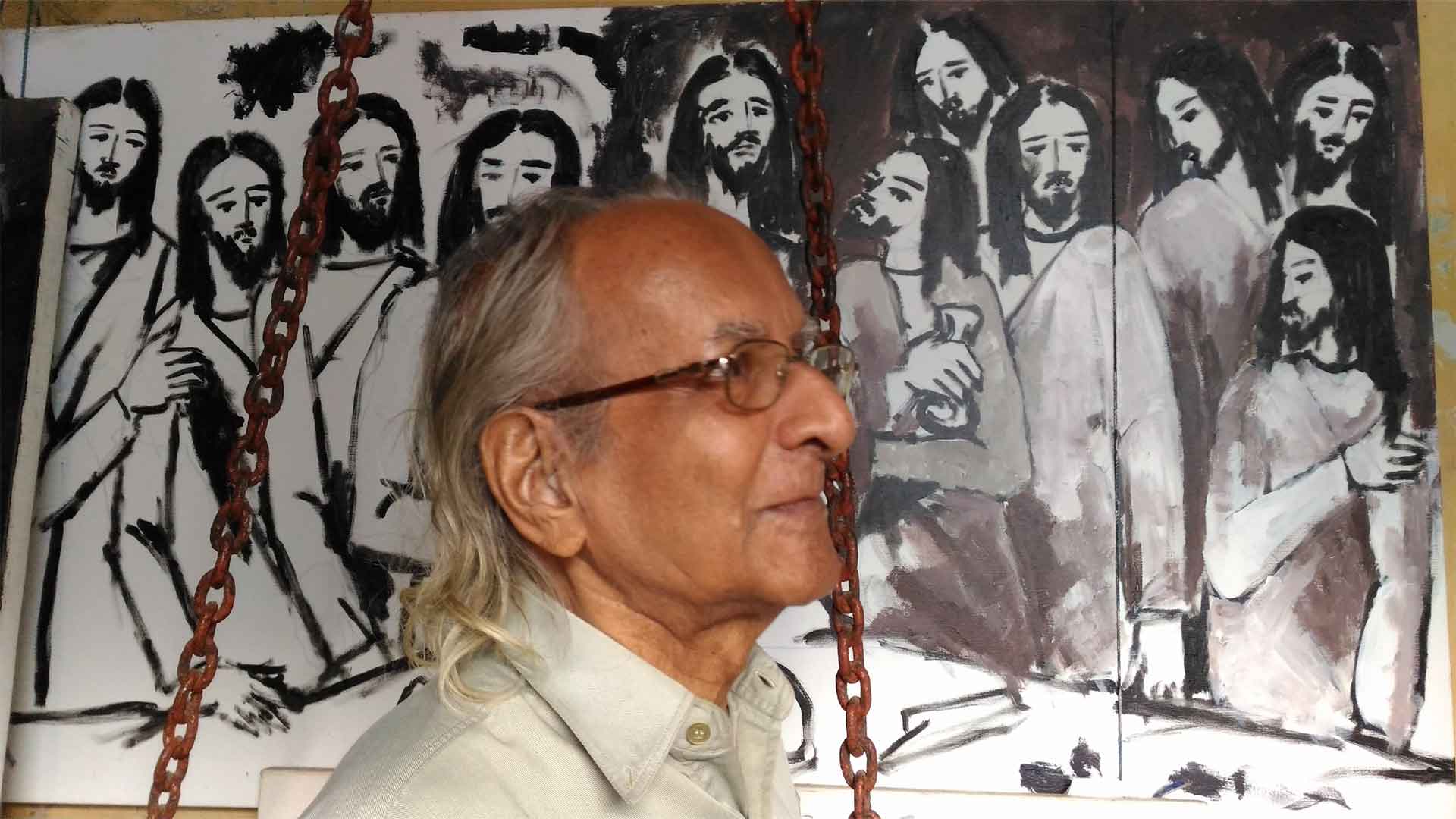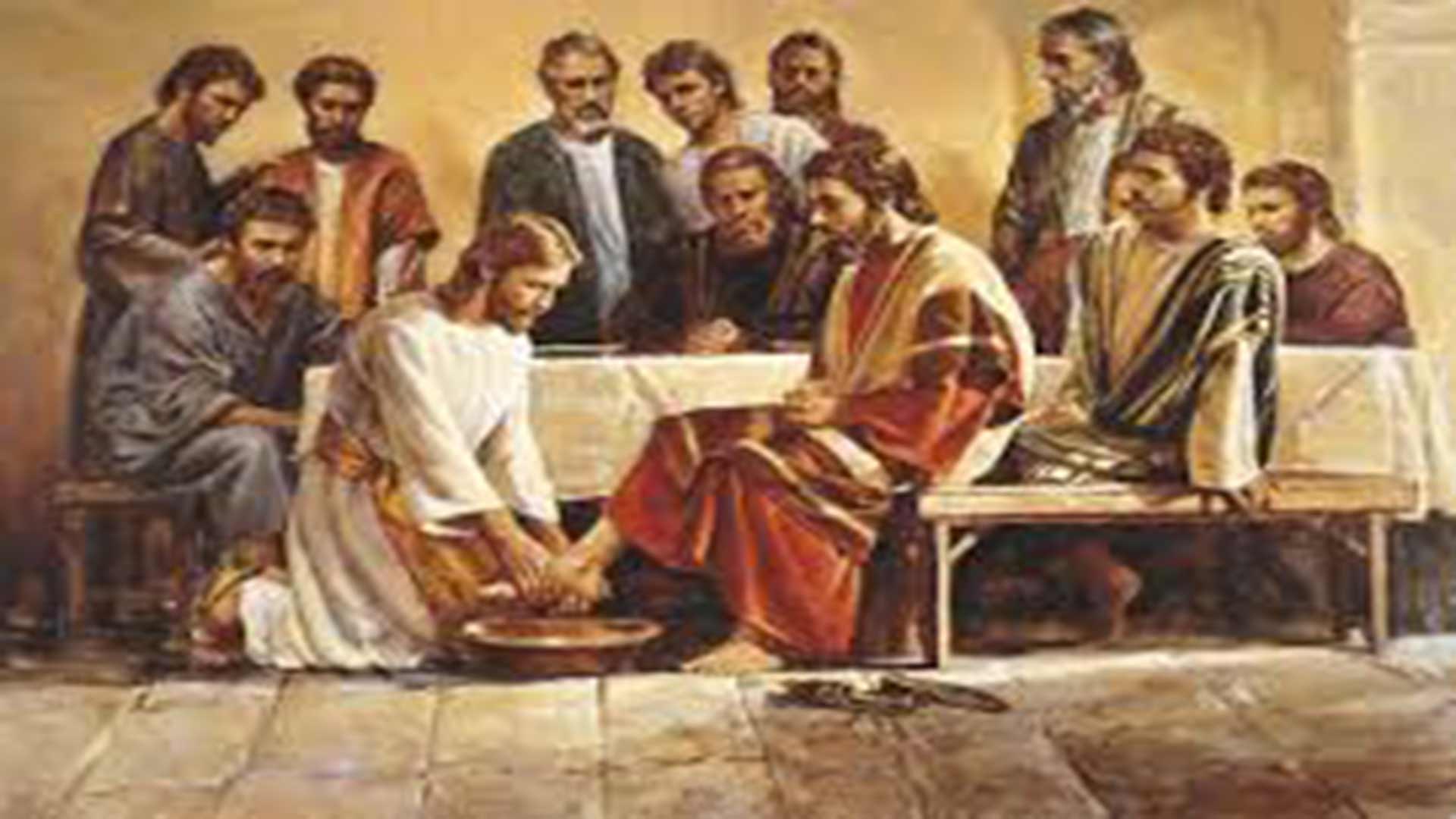Paris and Pain
Scarcity is all but unimaginable in our modern world of plenty. Younger generations often wonder how their ancestors lived with limited resources and yet can recollect the old days with tenderness. For one thing, they lived by faith, or at least did not blatantly offend God. It would be wrong to repay the Eternal Provider of our pain quotidien (daily bread) with pain. Whereas He cheers those who believe in Him, those who believe in themselves and revel in the sunshine eventually see no light at the end of the tunnel.
Today’s Readings invite us to trust in Divine Providence very especially, regardless of the circumstances. The First Reading (2 Kings 4: 42-44) shows us how Elisha, with just twenty loaves of barley, fed a hundred hungry men. It was the Lord’s promise, fulfilled after the Prophet had manifested his total devotion to Him. And the miracle is symbolic of how nothing is impossible with God: He knows and satisfies our every need and, above all, the spiritual needs of those who hunger for His Word.
While every Sunday, the Old Testament reading is coordinated thematically with the Gospel text, the connection this time around is more than obvious. Both readings are about multiplication of loaves. In the Old Testament there are examples of God providing the Israelites with bread as they starved in the wilderness (Ex 16: 4) and Elijah creating an unending supply of flour and oil so as to survive a famine (Kings 17: 15-16), but neither parallels today’s Gospel story as strongly.
Four Gospel accounts
There are six Gospel accounts of the multiplication of loaves.[i] Jesus twice fed the people — once, 5,000 were fed with just five loaves and two fish, and twelve baskets of bread were left over; and on another occasion, 4,000, with seven loaves and some fish, and they had five baskets remaining. The former miracle is the only one (other than the Resurrection) that is recorded in the four Gospels; only Matthew and Mark, even if repetitiously, made a note of the second instance as well.
The miracle highlights the wisdom of having a supernatural approach even in what concerns our material needs. Trusting in the Lord is of the essence, for He has said, ‘Do not worry, saying, ‘What shall we eat?’ or ‘What shall we drink?’ or ‘What shall we wear?’ For the pagans run after all these things, and your heavenly Father knows that you need them. But seek first His kingdom and His righteousness, and all these things will be given to you as well. Therefore, do not worry about tomorrow, for tomorrow will worry about itself. Each day has enough trouble of its own.’ (Mt 6: 31-34)
Of course, all of our troubles end when we partake of the ultimate meal that Jesus has provided us with: the Holy Eucharist. This happens at every Sacrifice of the Mass. The multiplication of loaves foreshadowed Our Divine Lord and Master’s supreme example of love instituted at the Last Supper. It was therefore very painful to see it all parodied at the opening ceremony of the Olympic Games in Paris on Friday.
That the tableau was hardly contextual is beside the point; that it was in bad taste is an understatement. The vanity on display was but a betrayal of the memory of Charlemagne and a direct affront to the religion that has shaped France. The king of the Franks, by his efforts to ensure the unity of Christendom, was regarded as ‘Father of Europe’, while his country was called the ‘eldest daughter of the Catholic Church’. So, what happened in France on the weekday of Christ’s death is nothing short of a national sin crying out to heaven for vengeance.
Paris or perish?
Charlemagne’s much-desired unity of Christian Europe was a faithful reproduction of what St Paul, centuries earlier, had strived for with respect to the Church. In the Second Reading (Eph 4: 1-6), the Apostle to the Gentiles begged of his people to lead a life worthy of their calling: ‘You were called to the one hope that belongs to your call, one Lord, one faith, one baptism, one God and Father of us all, who is above all and through all and in all.’ We are; France is. But alas, our response has been pathetic, tragic, so the consequences may not be any different; it is a matter of supernatural justice…
Yet, whatever the problems facing us, individually, as a nation or as a civilisation, they are never too large for God. For example, when we multiply problems, God multiplies solutions; when we multiply curses, He multiplies judgements; and yet, when we multiply prayers, God multiplies blessings. It is equally apt to note Charlemagne’s motto: In Scelus Exsurgo Sceleris Discrimina Purgo (‘I fight against aggression and punish the aggressor’).
The ongoing Parisian mockery is French Revolution in loop mode. The revolution is still on, and it is against the Catholic Church. Alas, all but the Catholics seem to recognise it! We are perhaps the only ones who freely mock our own Mother, the Church. None would dare try these antics against any other religion... Are we to forgive even when our Mother is under attack? Is nothing sacred anymore?
Will Rome, then, and the Church in France and the world over, come out with a formal condemnation? And what about you and me? Are we going to foolishly accept, yet again, that the enemy is right, so all that is left to do is say Touché?
[i] Mt 14: 15-21 and 15:32-39; Mk 6: 35-44 and 8: 1-9; Lk 9: 12-17; Jn 6: 1-13
Banner: https://rb.gy/r69d67
Navelcar, aka Ganesh
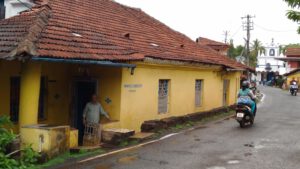
On a rainy morning in June [2018], we went up to the village of Pomburpa, taluka of Bardez, on a visit to the well-known Goan painter, stained glass designer and ceramist Vamona Ananta Sinai Navelcar, whose pen name is Ganesh. Despite his grey hair, he was a picture of rare vitality, and in this chat he comes across as enchantingly feisty. He invited us to see the inner patio of his house which doubles as his atelier.
For the original chat show in Portuguese, see https://www.youtube.com/watch?v=rMgblHr5gk4&t=1s
ON: We are face to face with a canvas [Last Supper] that you are working on… I suppose it’s your most recent work...
VN: I started it a week ago and have to deliver it in the next two days...
ON: You work at top speed!
VN: It feels good to work. I have worked on many Last Suppers – more than 30, in Portugal and here…
ON: Do have a penchant for Last Suppers?
VN: Yes, for Christ! At 8 years of age, I used to read the Bible in Konkani. I was surprised to see what a fine figure Christ is! I became more of a Christian ever since, a disciple of Christ indeed. I think I have nothing of Hinduism, nothing, and I belong totally to Christ…
ON: So you have a relationship...
VN: Yes, yes, there is a mystic relationship between me and Christ.
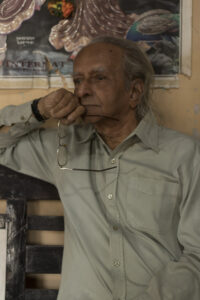
ON: Will this canvas too be signed ‘Ganesh’?
VN: Always Ganesh. None of my paintings bear my name alone. It could bear my name but this is always followed by ‘Ganesh’.
ON: Why ‘Ganesh’?
VN: Ganesh was my elder brother, who died at 16 when I was 8 years old. He was my guide.
ON: Did he inspire you to paint?
VN: My father wouldn’t allow me. He wanted me to be a doctor – like Hindus always do. I used to paint on the reverse of the calendars and would hide them when he came.
ON: Do you still have those calendars?
VN: No longer. After so many years… Well, now they would have been worth a lot.
ON: Indeed. But what was your father’s grouse against painting?
VN: I think the Hindu community holds art in contempt.
ON: Well, the Hindu civilization has great works of art to their credit… Ajanta and Ellora, for example, and so many other places.… Why the contempt, then?
VN: They are materialistic... What money does art fetch you? Medicine does!
ON: If not an artist, what would you have been?
VN: If not an artist today, I would have continued to be an employee of Chowgule’s…. After Matriculation, I began working there; I came across many people, until one day came the inauguration of the Chowgule Mines. Chowgule asked me to draw two portraits: one of him and other of the Governor. I did so. At the inaugural ceremony, the Governor asked the painter’s name; Mr Chowgule said it was one of his employees. I was called. The Governor was Bénard Guedes… the first thing he asked me was if I would like to study Art. If so, I could go to Portugal, but I said I would prefer Sri Lanka or Karachi… He said I should go to Portugal, and I said no. He then gave me a month’s time to decide, and thus I felt compelled to leave for Portugal. I couldn’t speak Portuguese very well then.
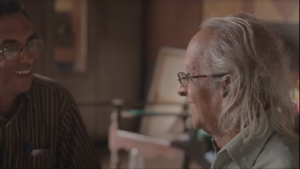
Stay in Portugal
ON: Did you complete your Lyceum in Portugal?
VN: There I did the 5th to the 7th Years of Lyceum; I did it in two years.
ON: After the Lyceum, did you move on to the School of Fine Arts? And how long was the course?
VN: It was a five year course. First it was the general course, then the complementary course. And for the admission test, one day as I was practising drawing, the teacher commented: ‘My friend, your drawings are poor. It won’t be a good idea to answer the admission test this year.’ After a week or so, he had a different opinion. My colleagues too were surprised to see a big leap forward from my first drawing. I stood second in the admission test.
ON: How was the Fine Arts course?
VN: Good. But those teachers knew nothing about other arts, the Oriental arts, Chinese and Japanese; and that India is another world, with a different culture. There was, however, a brilliant teacher, architect Frederico Jorge, who said ‘You have an original palette, and bright colours! You have a style of your own. Follow your path.’ Then came the Invasion or Liberation of Goa, or whatever you call it. I was stumped when a Goan asked me a very roguish question. I told him that I had nothing to do with Goa, and that the Goans were to blame for whatever had happened, for they never spoke their mind but remained mum. My scholarship was cancelled; they wanted me to speak out against India. Why would I speak out against India?
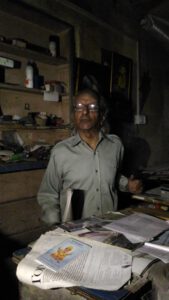
ON: After that you went to Africa…
VN: I had to, because the Government had cut off my scholarship, and there, instead of being posted in Lourenço Marques, I was sent to Nampula. I was stuck there for nine years, without a transfer. The Director lamented that despite being the best qualified teacher I was posted up north.
ON: That was politically motivated, wasn’t it?
VN: Yes, but I wasn’t disappointed. Truth always prevails.
ON: Satyameva Jayete [em sânscrito: ‘A verdade sempre triunfa!’].
Teaching career
ON: Were you happy to be a teacher?
VN: Yes. My aim was to understand the student’s technique or to guide them in using their technique, with none of my influence. Or else, they would just be a carbon copy of the teacher…
ON: Well, you let the student enjoy all the freedom!… And how did Africa influence you?
VN: Yes, there is an inadvertent influence of Africa on my paintings.
ON: And what about the people of Africa?
VN: They are a fantastic lot. To me, Africa is the land of Christ…
ON: In what way?
VN: To me, each African face is the face of Christ. Even while in Portugal I didn’t feel any Christian influence as I did in Africa…. Africa is Christ’s Paradise.
ON: That’s a nice expression… Did your style evolve?
VN: Yes, there has been an evolution; and I never repeat myself. What I draw today and tomorrow is completely different.
ON: Do you paint only on canvas?
VN: Really speaking, my specialisation is Stained Glass, a very difficult technique.
ON: Which would you regard as your greatest painting?
VN: None. I’m never happy with my work. I draw but am never happy. I do one and am not happy, another, and still not happy. Some say ‘this work is better than that work’ but I’m never happy with what I’ve done, never! And the day I begin to feel that I’ve done my greatest work it will spell defeat. ‘I am nothing, never shall be anything.’ These words of Pessoa opened the path of my life.
ON: What’s your work schedule? Are you at it every day or only when you feel like it?
VN: I am practically always at work, either drawing or painting.
ON: They say you used to sign your works as ‘Ashok’.
VN: That was in the 1950s and 60s; now it is ‘Ganesh’.
ON: Are there any particular colours that you like best?
VN: Blue, which is spiritual; and red, which represents violence.
On Three Continents
ON: You've been called "an artist of 3 continents". Did you travel a lot?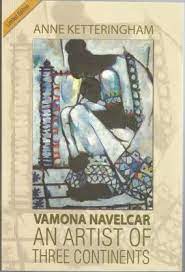
VN: No; Portugal, England, a bit of France, Italy…
ON: Which artists do you admire?
VN: Picasso, Braque, Matisse, Cezanne, Van Gogh…
ON: Do you think artists are different from others, think differently?
VN: Yes. They have a different perspective.
ON: It’s clear that you are a sincere man, and you like to stick to the truth.
VN: I speak the truth, and that’s why I find myself in the present condition; if not, I would have advanced further.
ON: But your work will be remembered for ever!
VN: Do you think so? My position as an artist is significant. But what has the Government of Goa done for me? Nothing! Today I would have preferred to be in Africa and never to return to Goa, never! It’s terrible. I acknowledge my defeat for having returned to Goa. I have to be frank, right?
ON: Oh yes! What were the other options open to you?
VN: To go to Africa and to stay there.
ON: Are you still in touch with your students?
VN: Yes, with many of them. The Mozambican Minister of Foreign Affairs, Armando Panguene, is a great friend of mine. And his wife was my student at the Lyceum. She is not an artist. She is an Ambassador. A very good lady. She is Armanda, and he is Armando…. When I speak of Mozambique… I get that fever. Wanted to go there…
ON: What was your most memorable experience about Mozambique?
VN: Fraternal friendship.
And as we were about to leave the lovely inner patio of the Navelcar house in Pomburpa, the Master said:
VN: This place is my everything: it is here that I read, sleep, rest…
And we soon got into other details of the Artist…
Navelcar Family
ON: How old is your house?
VN: More than 400 years old.
ON: Is your family from Pomburpa or settled here?
VN: My family hails from Navelim, Divar. They settled here four hundred years ago.
ON: So you were born here, started painting here, and grew up here... And which was your favourite spot?
VN: It was right here.
ON: Well, we find ourselves precisely at the spot of your inspiration…
VN: (Smiles) We would sit here, open these doors and contemplate the rain clouds flying over the house, creating forms that I would relate to the legends of Ramayana and Mahabharata. That influence exists in my works.
ON: Do you like music?
VN: Of course, don’t even talk about it! Western classical music, Mozart, Tchaikovsky…. and the Fado. ‘Aquela janela virada para o mar’ (‘A window with a view of the sea’)… Mourão… and many others… Amália Rodrigues…
ON: And well, here is a window with a view of the river!…
VN: Precisely. I remember Amália. ‘Aquele moreninho’, she would say. When I wasn’t there she would inquire about my whereabouts… She was a simple person, without any airs.
ON: So you knew her personally. Did you meet her when she visited Goa [in 1990]?
VN: Yes; and I offered her a drawing of mine, at the Kala Academy.
ON: So, when did you leave Portugal for Goa?
VN: In 1976. It was a big mistake…I’ve got some friends there. Very good people!
Personal Preferences
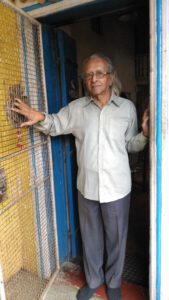
ON: What is your favourite food?
VN: Bacalhau [Gomes] de Sá, sausages, too, and beef.
ON: Well, thank you very much for your time, friendship and generosity.
VN: Today is a very significant day. I am here with friends who have deep friendship towards me and towards Art. Hope this will not be your last visit…
ON: Surely not!
VN: I am very grateful to you for your visit.
ON: The pleasure and honour is ours.
VN: And mine too!
(First published in Revista da Casa de Goa, II Series, No. 14, Jan-Feb 2022)
The Lord calls us to love one another
LENT 2020 – Day 44
Readings: Ex 12: 1-8, 11-14; Ps 115: 12-13, 15-16, 17-18; Cor 11: 23-26; Jn 13: 1-15
Maundy Thursday is the first day of the Easter Triduum. The readings of the Mass of the Lord’s Supper form a bridge between the historic liberation of the Israelites from slavery in Egypt and the final liberation of the world from the bondage of sin.
The reading from the Book of Exodus points to the origin of Israel as God’s Chosen People. The Lord commands that this month be the first of the year, in commemoration of the beginning of their liberation. He ordains on how to observe the Paschal rituals. These foster a feeling of religious community through the sharing of the paschal lamb. The staining of doorposts with blood of the expiatory lamb is the stamp of the divine that wards off all evil. Unleavened bread eaten in haste accompanied by bitter herbs is a symbol of the suffering from which the Israelites had fled.
When the twelve Apostles celebrated the Passover with their Master, they followed the traditional rite evoking the old covenants. It was also a thanksgiving for God’s many interventions to rescue the Israelites. What the Apostles did not realize, however, was that the Last Supper marked a new beginning. Jesus had anticipated Calvary where He would be presenting Himself as the paschal lamb, the Lamb of God. He did so mysteriously, by converting bread and wine into His Body and Blood. The Son of God made this supreme act of love so as to redeem the sins of humankind. The Holy Mass thus established became the bloodless Sacrifice of the New Covenant.
The Eucharist is a masterpiece of Jesus’ love, the best proof of His love for humankind. He made the Apostles participants in His Priesthood and ordained them to carry out that mystery. He gave them responsibilities and authority: to bind and loose in His name, to forgive sins, to transform the bread and wine into His Body and Blood. This the ordained priesthood would do infinite times, until the Lord’s return to the world. Their role is vital in helping the faithful to carry out their baptismal priesthood.
There was no better occasion than the Last Supper for the Lord to command His followers to love one another. He said, “A new commandment I give unto you, that ye love one another; as I have loved you, that ye also love one another. By this shall all men know that ye are my disciples, if ye have love one to another.” (Jn 13: 34-35) This new commandment is a summary of all of God's law and brings about the definitive liberation.
Speaking to the first Christians, St Paul reiterated that this liberation emerged when the Paschal Lamb, who is the Christ, was sacrificed. Given that we Christians aren’t always united in love, we must take seriously the reminder from the Apostle of the Gentiles: that the Eucharist and the Church – the Sacramental Body and the Mystical Body – are intimately connected. We should place ourselves at the service of our brethren, in humility and love, of which the washing of the Apostles’ feet by our Lord is emblematic. A Eucharist celebrated amidst division cannot be a sign that we are followers of Christ.
